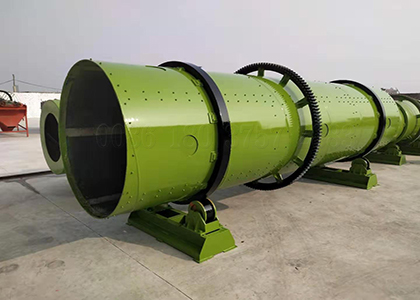Under the concept of sustainable development, green sustainable development technology refers to the use of advanced science and technology to promote the transformation of enterprises and the development of new energy, and minimize the impact of organic fertilizer production on the environment. Through organic fertilizer production equipment, reduce environmental pollution, and ultimately achieve the balance between economic development and ecological environment protection, and form the production technology of economic and social development form.
Green and sustainable organic fertilizer production technology can promote the technical transformation of organic fertilizer industry, conform to the trend and concept of international ecological environment protection development, realize low emission and low energy consumption of organic fertilizer, realize the purpose of protecting ecological environment, and realize the coordinated development of economic development and ecological environment protection.

Organic fertilizer production technology aerobic composting technology
Aerobic composting technology is an important technology to treat organic waste, especially suitable for agricultural solid waste fertilization and substrate. Aerobic composting technology is the most effective industrial method to treat agricultural waste, ferment into organic fertilizer and realize resource utilization. Countries all over the world attach great importance to the application of advanced engineering technology, improve the industrialization level of aerobic composting technology, and make composting technology develop towards mechanization, environmental protection, high efficiency and comprehensive development.
Granulation process of organic fertilizer
According to the soil formula and production process, other nutrients are added into the organic matter, and the organic fertilizer is further processed by the organic fertilizer granulator to convert the organic fertilizer into granules. Fermentation compost can be used as organic fertilizer. But for commercial products, further testing is needed. In terms of industry standards, organic fertilizer products have relevant regulations from nutrient content to harmful substance content and water content. Therefore, it is necessary to add necessary nutrients according to the detection situation to become a real organic fertilizer product. The commonly used organic fertilizer granulation equipment includes disc fertilizer granulator, flat mold granulator, rotary drum granulator, etc.



